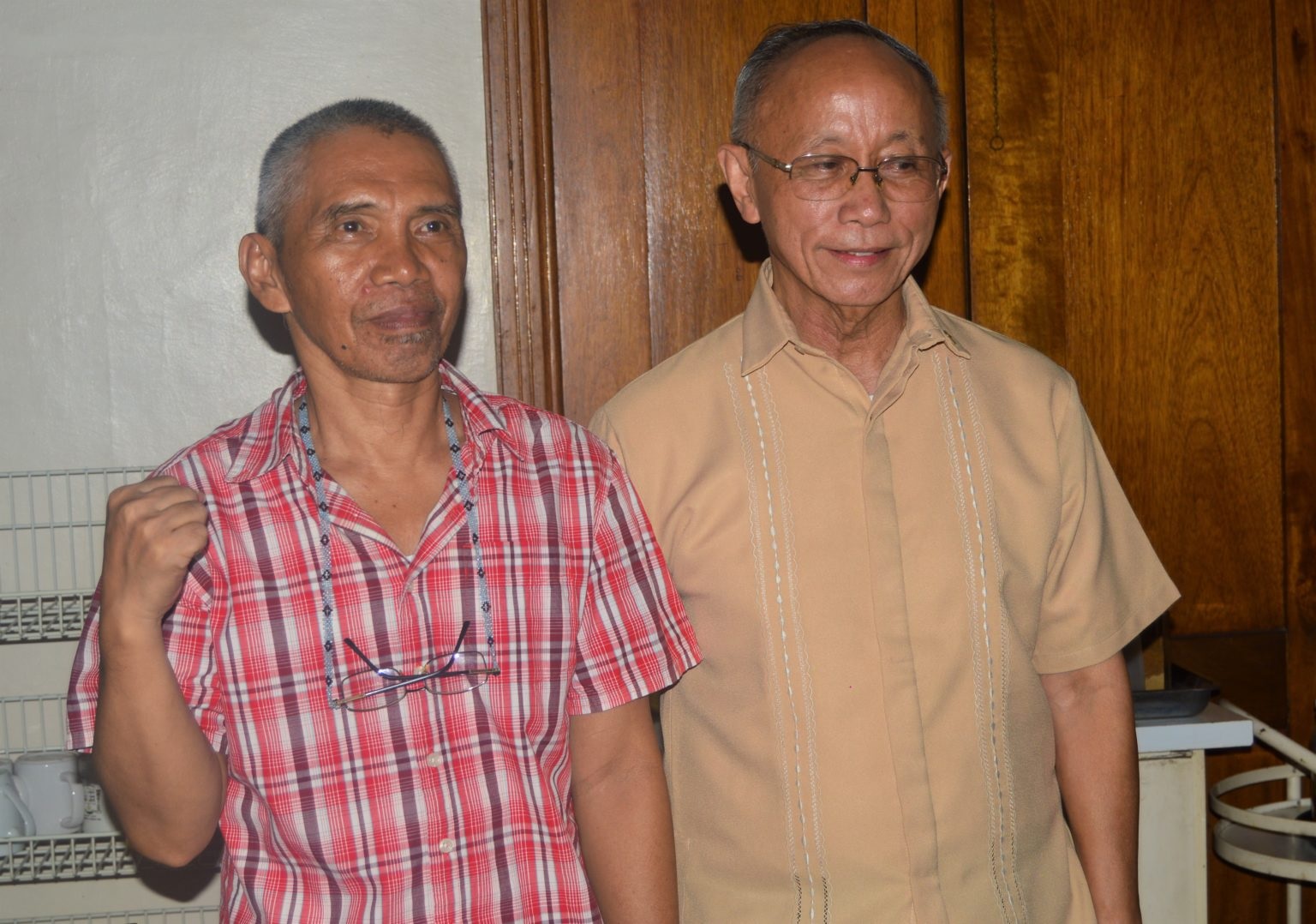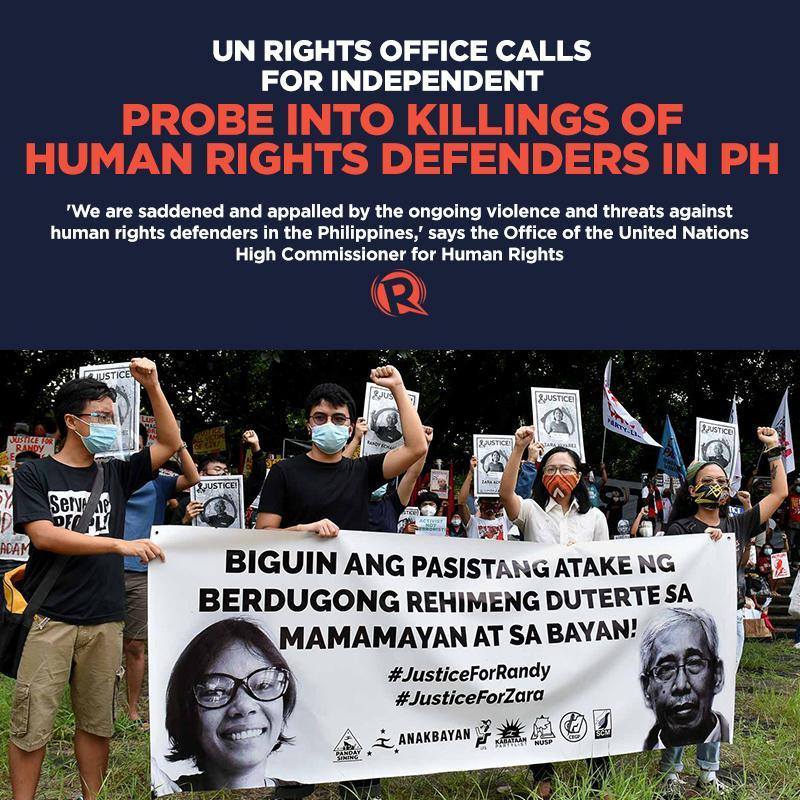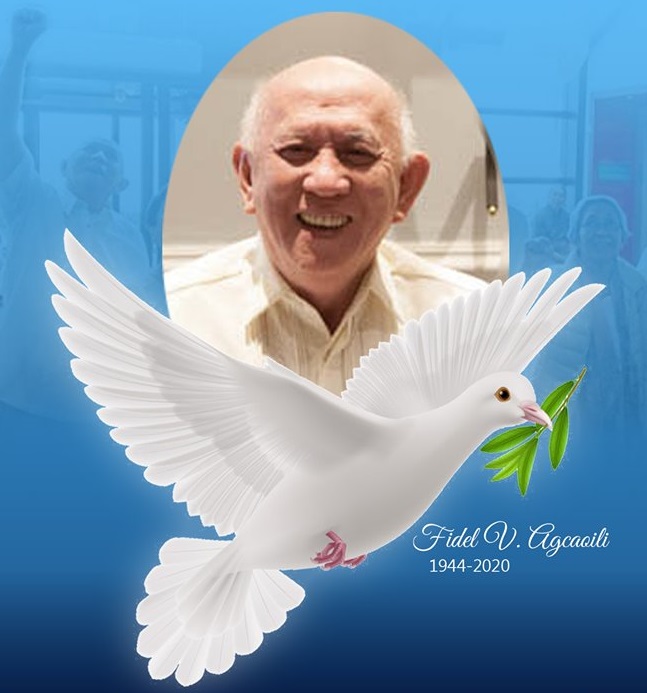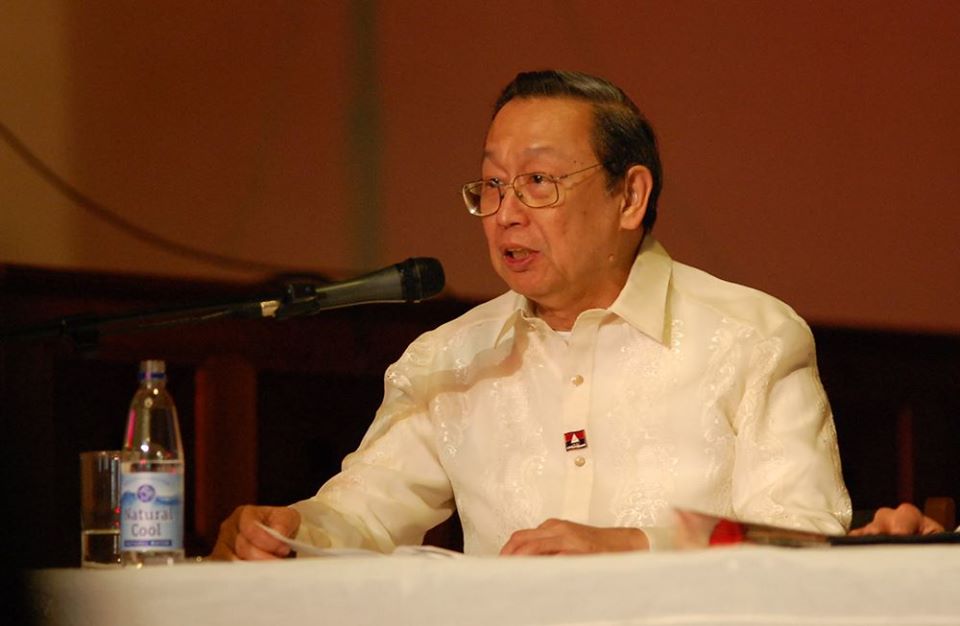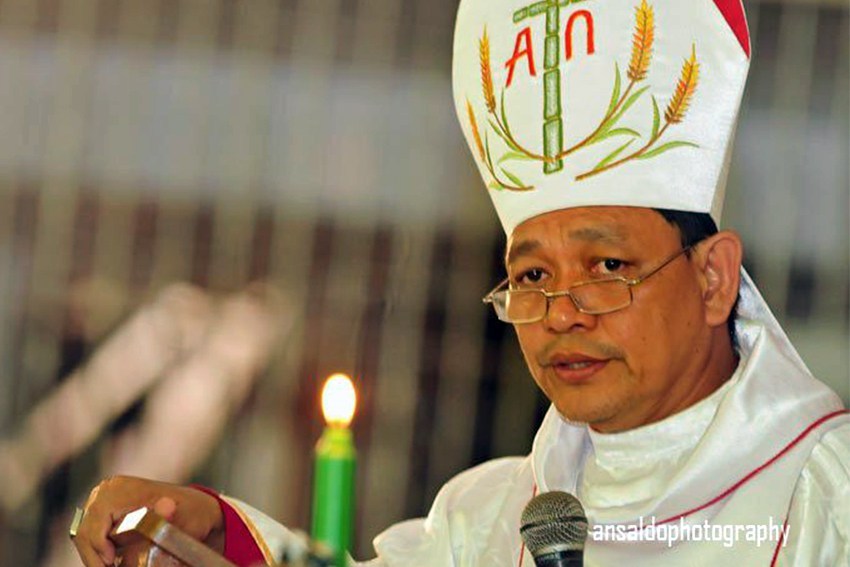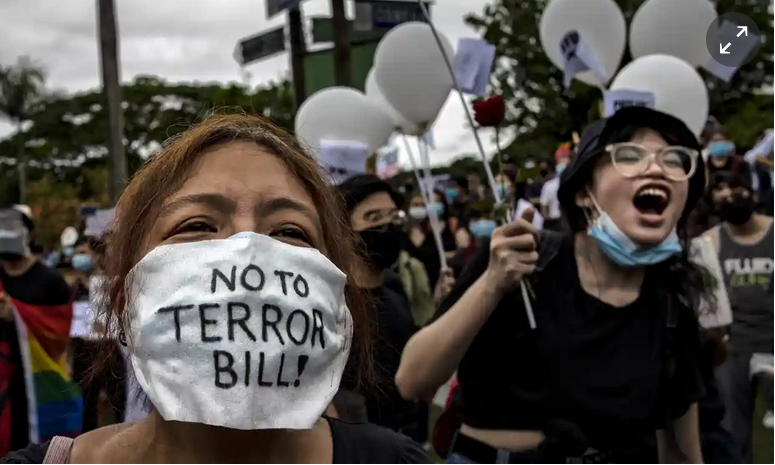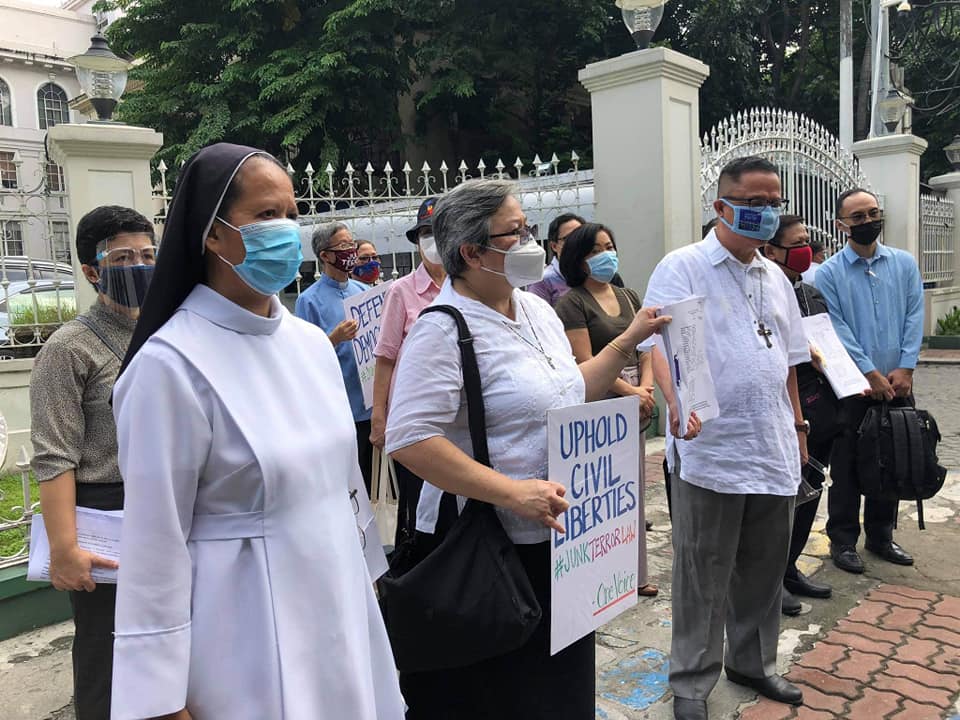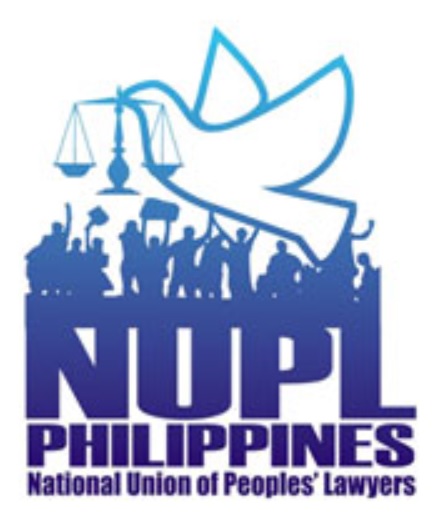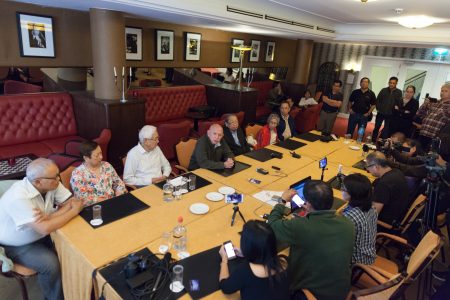
Part of the GRP panel at the table just as the 5th Round of peace negotiations was to start in the Netherlands.
By Interaksyon
May 27, 2017 – 8:39 PM
(UPDATE 5 – 8:49 a.m. May 28) Scrambling to save the fifth round of formal peace talks, the negotiating panels of the Government of the Republic of the Philippines (GRP) and the
National Democratic Front of the Philippines (NDFP) meeting in The Netherlands have agreed to continue informal negotiations at 9 am Sunday, May 28, (3 pm Philippine time).
NDFP panel spokesperson Luis Jalandoni told reporters Presidential Peace Adviser Jesus Dureza requested for the postponement of the resumption of their panel-to-panel meeting
originally scheduled at 8pm Saturday (4 am Philippine time).
The parties met at 6:30 in the evening (12:30 am Philippine time) for the NDFP to submit a written reply to the GRP’s statement that it would not participate in the fifth round of talks
unless the Communist Party of the Philippines rescinds its earlier order to the New People’s Army to further intensify its military operations against state forces.
The NDFP also said the GRP asked them to sign a bilateral ceasefire agreement for the fifth round to proceed. Reacting to the NDFP’s written reply, GRP chief negotiator Silvestre Bello
III said the NDFP reply is “worth looking into.”
Both the NDFP and the GRP refused to divulge the contents of the reply, however, saying they have mutually agreed to keep the current informal negotiations between themselves.
Their early evening discussion was attended by the Third Party Facilitator, the Royal Norwegian Government.
The GRP and the NDFP are still trying to save what appeared earlier in the day to be an imminent cancellation of the round, sources from both parties said. Bello and NDFP counterpart
Fidel Agcaoili were seen holding backchannel talks in between panel-to-panel discussions in apparent efforts to save the formal round.
Earlier, Agcaoili said it is the third consecutive round the GRP presented conditionalities before the peace negotiations formally opened.
The GRP has been consistently asking the NDFP for a bilateral ceasefire agreement since the third round in Rome last January. The NDFP position, expressed repeatedly, is that such is
only possible when socio-economic reforms as well as political and constitutional reforms agreements have already been signed and implemented in accordance with The Hague Joint
Declaration of September 1, 1992.
5th round still possible
Both parties said the fifth round is still possible.
Earlier reports reaching Manila on Saturday, May 27, indicate that the 5th Round of the formal negotiations between the Government of the Philippines (GRP) and the National
Democratic Front of the Philippines (NDFP) in Noordwijk aan Zee, The Netherlands has been put in suspended animation by a last minute conditionality that almost scuttled the talks,
now best described as “in recess” as a result.
The respective panels of both sides promptly scrambled to troubleshoot the negotiation in order to try and salvage the peace talks.
The NDF Negotiating Panel said it was drafting a reply to its Government of the Republic of the Philippines (GRP) counterpart as part of efforts to find common ground, untangle the
bind and allow the fifth round of formal peace negotiations to proceed.
Bello, Agcaoili, The Netherlands
Sylvestre Bello of the GRP panel and NDF’s Fidel Agcaoili (back to camera) working to keep the peace talks in The Netherlands from collapsing. Photographed by Kodao Productions
The government of the Philippines had announced it would not proceed with the scheduled 5th round of talks, through Presidential Spokesman Ernesto Abella “in the light of the latest
public announcement by the Communist Party of the Philippines (CPP) to accelerate and intensify its attacks against the government due to the President’s declaration of martial law in
Mindanao.
“We question the sincerity of the CPP/NPA/NDFP, if they truly are in pursuit of peaceful coexistence. The Duterte administration would rather pursue the path of genuine dialogue to
build a nation worthy of its citizens.”
Abella’s statement wrong
GRP chief negotiator Silvestre Bello III, for his part, clarified that Presidential Spokesperson Ernesto Abella’s statement was wrong. Abella’s announcement was lifted from Dureza’s
prepared statement read to Filipino and Dutch journalists covering the talks. Informed of Abella’s announcement, Bello looked surprised but underscored that such statements should
come only from the government panel present in The Netherlands.
“The fifth round is still a possibility,” Bello maintained. The panels are set to meet again in a last ditch effort to salvage the scheduled fifth round, Kodao Productions indicated in a
dispatch as reported by Raymund B. Villanueva.
The CPP order to NPA
The CPP order had been in response to the intensified AFP operations and widespread human rights violations preceding and following the declaration of Martial Law in the whole of
Mindanao.
President Duterte justified his Martial Law declaration by citing as reason the terrorist actions of the Maute Group in Marawi City. But Lorenzana declared that the NPA was also a
target of AFP military operations.
Silvestre Bello made a subsequent clarification that Duterte had said that the Mindanao martial law was not aimed against the NPA.
NDF reply
NDFP chief negotiator Fidel Agcaoili said their reply will clarify to the GRP the NDFP panel could not order the Communist Party of the Philippines (CPP) to retract its order to the New
People’s Army (NPA) to further intensify their offensive operations against the Armed Forces of the Philippines and the Philippine National Police.
Agcaoili explained the CPP’s directive was a response to GRP Defense Secretary Delfin Lorenzana’s statements that the NPA was among the targets of President Rodrigo Duterte’s
Martial Law declaration over the entire Mindanao region.
Agcaoili cited bombings of communities in North Cotabato and Bukidnon that killed one civilian and injured several others in the past two days.
“There are NPA units operating in those areas,” Lorenzana reasoned.
He added that the NDF could only recommend to the CPP in much the same way that GRP’s chief negotiator Silvestre Bello III and Presidential Peace Adviser Jesus Dureza could not
order the AFP and the GRP security cluster to withdraw their all-out war policy against the NPA and lift President Rodrigo Duterte’s martial law declaration over the entire Mindanao
region.
Agcaoili said they have gone as far as they could go in recommending to the CPP to reconsider its order to the NPA.
GRP’s cease fire demand
Agcaoili revealed the NDFP panel was also told by the GRP panel it wants a bilateral cease fire agreement signed during the fifth round. “We have made our position clear that until we
reach an agreement on social and economic reforms as well as political and constitutional reforms, there could never be a cease fire,” Agcaoili said.
“We hope they would receive our reply positively so that, hopefully, we can proceed with the opening ceremony of the fifth round tomorrow [Sunday],” Agcaoili said.
Presidential Peace Adviser Jesus Dureza says the negotiations were put in jeopardy by the decision of the Communist Party of the Philippines to order the NPA to intensify attacks in the
face of the declaration of Martial Law in Mindanao.
“We question the sincerity of the CPP/NPA/NDFP, if they truly are in pursuit of peaceful coexistence. The Duterte administration would rather pursue the path of genuine dialogue to
build a nation worthy of its citizens.”
Word reaching Manila from The Netherlands, indicated that the fifth round of formal peace negotiations had, indeed, hit a snag with the announcement by the government panel of its
conditionality.
Mixed signals
This is the second time the GRP submitted to its counterpart a set of demands before a formal opening to a round of formal peace negotiations. For his part, the NDF’s negotiating
panel chair Fidel Agcaoili reacted to the Abella statement: “This is contrary to what the GRP negotiators are saying here, after they submitted to us a copy of Dureza’s opening speech
containing such a pronouncement. They [the GRP panel] are now clarifying that they are they are willing to sit down and find solutions to the problems. So, like everyone else, the
NDFP is receiving mixed signals from the GRP. But we hope to know the real score in a couple of hours’ time.”
In a press briefing, the NDF panel said this demand by the GRP is a new one and it was not included in their April 6 Joint Statement that the fifth round of talks shall focus on the socio-
economic reforms agenda.
NDF added that a signed bilateral cease fire agreement must only come after ground rules for its implementation have been forged by the parties: “We are supposed to be talking while
fighting like the parties have successfully done in the past, especially during the Ramos regime.”
The status at the moment may best be described as a “recess” while both sides try to work out whether to proceed or not.
– With Raymund B. Villanueva, Kodao Productions

